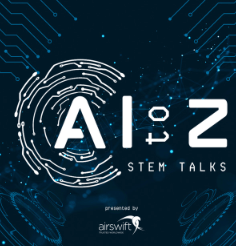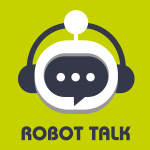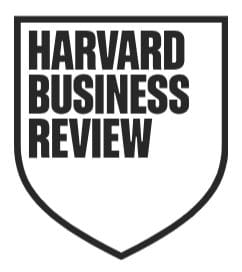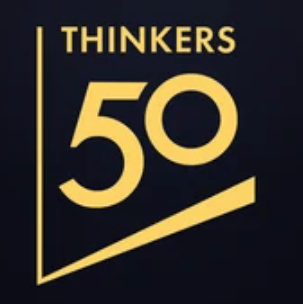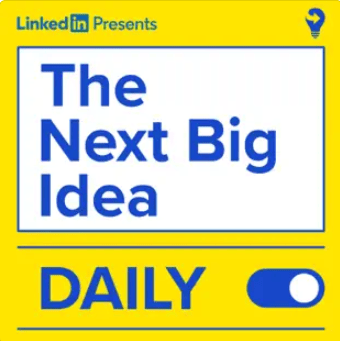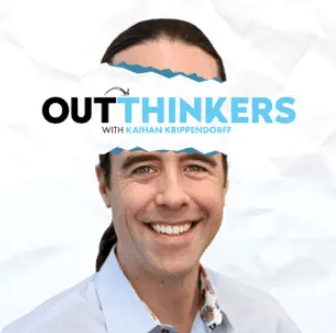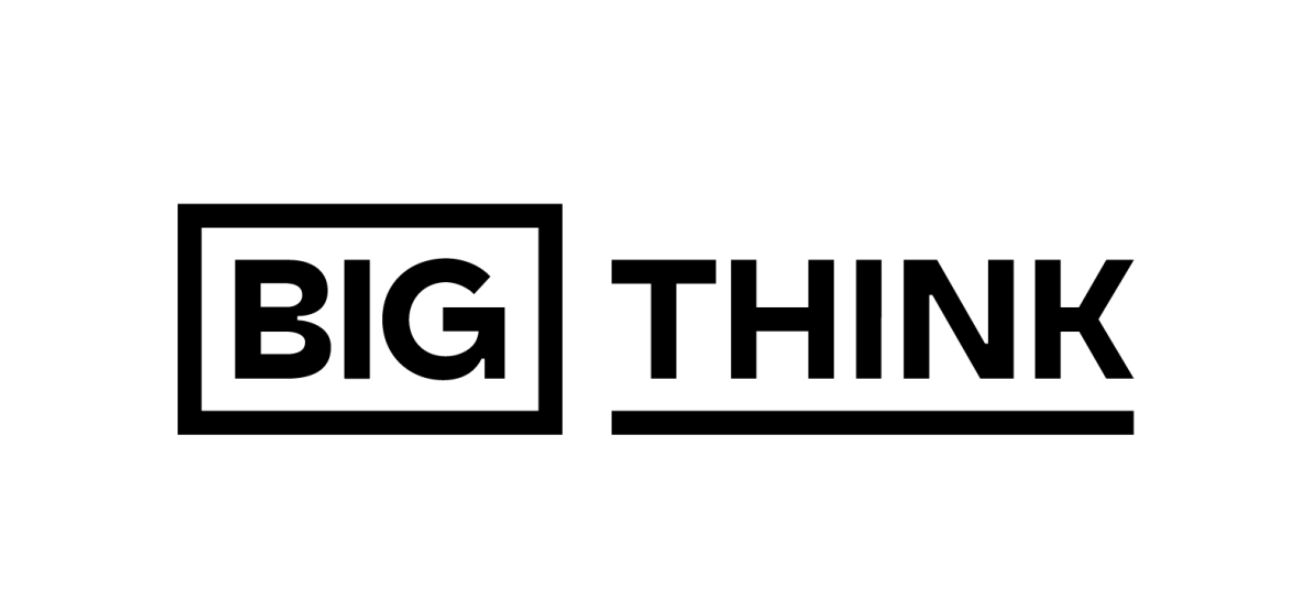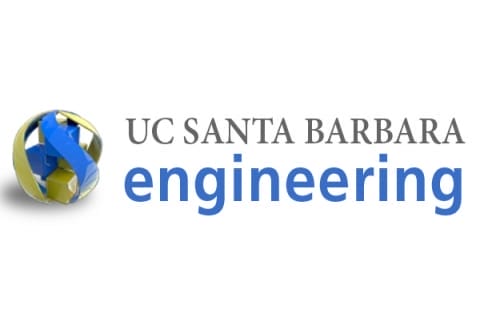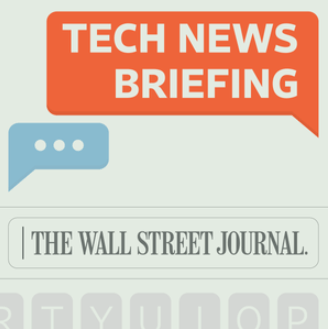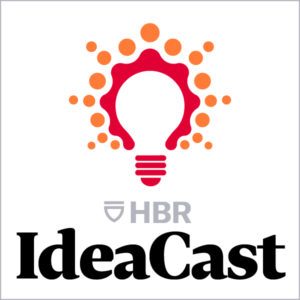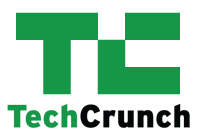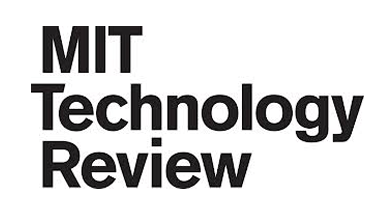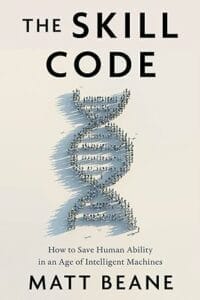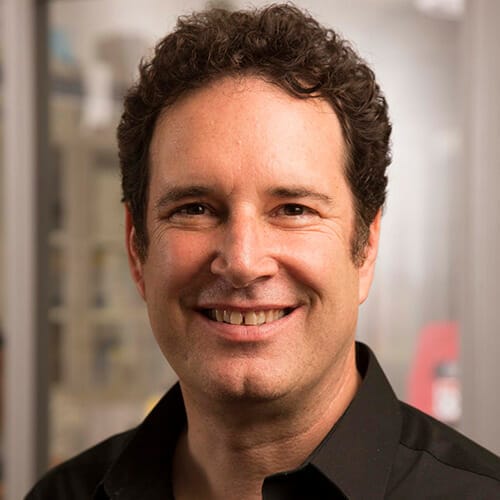Videos
Learn More About Matt Beane
Artificial intelligence (AI) and robotic systems are increasingly prevalent in business today, and their influence on how we work will only grow from here. What’s going to happen to the workplace? How will jobs change and what do executives need to do now to prepare? According to Matt Beane, University of California, Santa Barbara Technology Management professor, for all the opportunities these technologies create, they’re also having unforeseen impacts on learning and innovation.
“The way we learn and build skills today is changing itself,” says Beane, a digital fellow at the Stanford University Digital Economy Lab and MIT’s Initiative on the Digital Economy. “The headlong introduction of sophisticated analytics, AI, and robotics into many aspects of work is fundamentally disrupting traditional on-the-job learning, which has always been a time-honored and effective approach.”
Author of “The Skill Code: How to Save Human Ability in an Age of Intelligent Machines” (Harper Business, June 2024) and a leading social scientist and former principal for a management consulting firm focused on group and team dynamics, Beane studies the relationship between humans and intelligent technologies. His research shows leaders, including CEOs, chief technology officers and human resource executives, that as tools become more sophisticated, workers get fewer opportunities for mentorship that involves practice and learning from mistakes; the very kind necessary to effectively leverage those sophisticated tools. As a speaker and advisor, Beane’s unique expertise at the intersection of AI and the future of work provides practical frameworks for leaders to develop strategies for implementing tech solutions while enabling workers to simultaneously build skills and connections with each other and enhance an organization’s human capital.
Our Chimeric Future with AI: Bringing Mentorship Into the Future
With workers becoming disconnected from each other when humans are removed from adjacent tasks, Beane points out that a mindful approach to AI system adoption is vital. The solution, he explains, is to automate and augment so everyone benefits.
“You can automate in a way where the tide lifts all boats,” says Beane, who was named to the Thinkers50 Radar Class of 2021. “It’s possible to apply automation such that it will empower experts to improve the quality of their output and the quality of their job as a result. It’s more satisfying, more fulfilling and workers are more productive. The same can become true of the employees they work with.”
With highly automated systems leading to fewer opportunities to learn through hands-on instruction, some workers are turning to unvetted resources like YouTube videos to see examples of expert work. With in-person, hands-on learning becoming rarer, Beane says we must find new, AI-enabled avenues for mentor/mentee relationships.
Such a relationship could take the form of AI-enabled skill and task matching systems, online skill repositories and newer hardware like augmented reality (AR) and virtual reality (VR)-powered systems that will intelligently connect expert and novice workers, allowing them to develop skills jointly. It’s what Beane calls “our chimeric future.”
“An infrastructure like this would do for skill what the internet did for knowledge: it would become a place where we’re all contributing to and extracting value from a dynamic resource,” says Beane, former Chief Human-Robot Interaction Officer of Humatics, an MIT-connected, full-stack IoT startup. “We need a global learning infrastructure that doesn’t leave the skill haves and have-nots further apart. Organizations that build a 21st century “SkillHub” like this will be relevant and successful thanks to an adaptive, engaged workforce.”
Implementing AI While Enhancing Human Capital
Beane points out that while newly automated tasks may improve output quality in the near-term, the unintended consequences of removing humans from the process and siloing duties can be detrimental to an organization. With workers becoming increasingly disengaged and young employees unable to take advantage of traditional skills-building avenues like mentorship and apprenticeships, he says it’s critical for leaders to understand how individual jobs are connected and how their employees learn skills in the first place.
“Many times, leaders don’t realize they may be making a trade-off for better productivity while snapping the bonds between experts and novices,” Beane explains. “Leaders need to be committed to the notion that it’s possible to implement a tech solution while enhancing these bonds – and the skills that flow from them.”
Beane drills down the most important aspects of quality skills development within expert-novice relationships with “The Skill Code.” For skill to flourish, he’s found, work needs to involve healthy forms of “three Cs”: Challenge (difficulty and struggle), Complexity (broad, multi-dimensional context), and finally the irreplaceable human Connection (bonds of trust and respect). With research-backed checklists, his ideas can guide leaders and workers everywhere to set the stage for optimal skill development – even while putting automation to work.
###
Matt Beane, University of California, Santa Barbara Technology Management professor, has conducted extensive studies on robotic surgery, robotic materials transport and robotic telepresence in health care, elder care and knowledge work. His research appears in top management publications such as Harvard Business Review and Administrative Science Quarterly. Named a Human-Robot Interaction Pioneer, Beane is a regular contributor to such popular outlets as Wired, MIT’s Technology Review, TechCrunch, Forbes and Robohub. Beane has also served as a founding executive at Humatics, an MIT-connected, full-stack IOT startup, and a principal for a management consulting firm focused on group and team dynamics.
Beane graduated from Bowdoin College with a degree in philosophy. He received his master’s degree and Ph.D. from the MIT Sloan School of Management.
Matt Beane is available to advise your organization via virtual and in-person consulting meetings, interactive workshops and customized keynotes through the exclusive representation of Stern Speakers & Advisors, a division of Stern Strategy Group®.
Learning to Work With Intelligent Machines
Firms have begun to push – hard – for AI related ROI. But, according to UC Santa Barbara technology management program professor Matt Beane, Ph.D., unless leaders push smart, their organizations will blow apart the talent pipeline, leaving the company vulnerable. In this provocative, practical presentation, Beane draws on over a decade of research, his acclaimed book “The Skill Code,” and current startup experience to show that the firms that win will turn AI into an ally – a new tool to jointly optimize productivity and worker skill development. Audiences learn that skill comes from working with experts, not from training, and default AI designs and implementation patterns block skill development by novices. With a nod to his renowned 2019 TED Talk, Beane shows that if leaders handle AI initiatives right, organizations will see improved, measurable productivity gains and enhanced skill development that will drive results and loyalty now and into the future. Audiences walk away with an accessible understanding of the three “Cs” that leaders need to protect and enhance as they implement AI – Challenge, Complexity and Connection – the critical skill development opportunities workers need to win in tomorrow’s competitive AI landscape.
How to Adopt AI While Protecting Human Capital
Artificial intelligence and robotic systems allow organizations to streamline processes and ensure output quality, but they can also have unintended consequences. In this eye-opening presentation, University of California, Santa Barbara technology management professor Matt Beane explains that we are unintentionally removing humans from processes and siloing tasks, which can lead to employees becoming disengaged and behind on building skills. An expert on human-machine interaction, he’ll illustrate how on-the-job learning, the traditional route for skill-building, is under threat, but there are ways to bring it back stronger than ever. Audiences will gain strategies for implementing tech solutions while enabling workers to build skills and connections with each other, greatly enhancing an organization’s human capital.
Skillsharing and Mentorship in “Our Chimeric Future”
With on-the-job learning and mentor/apprentice relationships falling by the wayside due to increased automation, how will novices learn from experts in the future? In this fascinating presentation, University of California, Santa Barbara technology management professor Matt Beane will describe what he calls “our chimeric future.” He’ll outline a vision for a global learning infrastructure that will match mentors and mentees through artificial intelligence and other cutting-edge technologies. Explaining that such systems will allow workers to build skills by connecting with experts, regardless of location, Beane gives audiences a window into a future where virtual on-the-job learning will still be possible and just as vital as it always has been.
Activating Quality Skills Development with The Skill Code
Think of your most valuable skill, the thing you can reliably do under pressure that delivers results and looks like magic to those nearby. How did you learn it? In this engaging presentation, University of California, Santa Barbara professor Matt Beane reveals how his years of research shows that traditional ways of learning, like mentor/apprentice relationships, are being threatened by the insertion of new technologies between junior and senior workers. Beane will draw on his book “The Skill Code: How to Save Human Ability in an Age of Intelligent Machines,” to reveal his research-backed framework that accounts for quality skills development. This code consists of “the three Cs”. Audiences will learn how to ensure the healthy version of this “skill code,” including Challenge, Complexity and Connection. Beane explains what the skill code is, how it’s being threatened, and what a hidden group of “shadow learners” can teach us in rewriting the skill code for human flourishing in the 21st century.
Finding Innovation in the Shadows of Your Organization
According to University of California, Santa Barbara professor Matt Beane, the way we’re redesigning work to take advantage of intelligent technologies is a key reason we’re not yet seeing massive, related gains. We’re driving innovation into increasingly illegitimate places – the shadows of our organizations. As Beane explains, today’s workers have fewer approved opportunities to experiment and adapt on the job. Why? Because sophisticated tools like artificial intelligence are making it easier to watch and measure employee behavior, pushing them to less observable and appropriate practices to learn and innovate. We can still innovate and adapt in this shadowy environment, but the standard playbook won’t do, says Beane. In this presentation, he explores deviance in work involving machine intelligence. He also shares his vision that flips the current reality into one of distributed, AI-enhanced organizations that empower us to innovate out in the open.

The Skill Code: How to Save Human Ability in an Age of Intelligent Machines
(Harper Business, June 2024)

Resourcing a Technological Portfolio: How Fairtown Hospital Preserved Results While Degrading Its Older Surgical Robot
(Administrative Science Quarterly, May 2023)

Shadow Learning: Building Robotic Surgical Skill When Approved Means Fail
(Administrative Science Quarterly, January, 2018)
“With riveting stories, 'The Skill Code' offers a timeless recipe for skill development and thriving at work in the age of AI.”
“With academic rigor and actionable insights, Matt’s watershed book offers a new approach to skill development that aligns the age-old realities of expert-novice collaboration with the innovative potential of intelligent tools.”
“In this vital book, Beane focuses us on an immediate, hidden concern: that today’s powerful technologies give people fewer opportunities to learn as they try to master a difficult craft.”
“If you’re worried about your skills becoming obsolete, this book may be your saving grace. Matt Beane has spent his career studying how to gain and maintain expertise as technology evolves, and his analysis is both engrossing and edifying.”
"Beane shows us the true human-centered approach to AI advancements and how we must act now to achieve the next generation of human skills coupled with the productivity gains from AI.”
“There has never been a more important time for this book—nor anyone more qualified to explain what it all means than Matt Beane. 'The Skill Code' teaches urgent lessons.”
“Beane delivers an essential, meticulously-researched roadmap for combining intelligent technologies with the way humans have built skill for thousands of years to reach our brightest possible future.”
“Matt’s decades-long curiosity about human work positions him perfectly to offer such a thoughtful and well-researched guide to skill development in this age of generative AI.”
“'The Skill Code' is a compelling reminder of the timeless importance of human guidance in an increasingly automated world.”
“Matt Beane’s 'The Skill Code' is a rollicking read, it’s magnificently researched, and, above all, a relentlessly useful and timely playbook.”
"Styling the content as 'technology agnostic,' author Beane identifies a strategic mindset necessary to navigate the transformative use of AI technology in a multitude of work environments. Distilling critical workplace conditions down to the three Cs (challenge, complexity, and connection) vital in nurturing team members’ feelings of value and development, Beane shares research on the consequences to expertise when these conditions are compromised by intelligent machines or robotics assuming portions of the work. One of the most striking examples involves the use of robotics in surgical procedures. Ultimately, Beane identifies a manner of proactive learning that involves individuals breaking out of prescribed protocols to become 'shadow learners.' This method of skill acquisition requires leaning into curiosity, creativity, and assertively expanding technical understanding to achieve the expertise needed to drive innovation. Utilizing the checklisted suggestions will position adopters to maintain awareness of skill-loss risks while employing strategies for innovation to prevent that loss for themselves and new colleagues."















